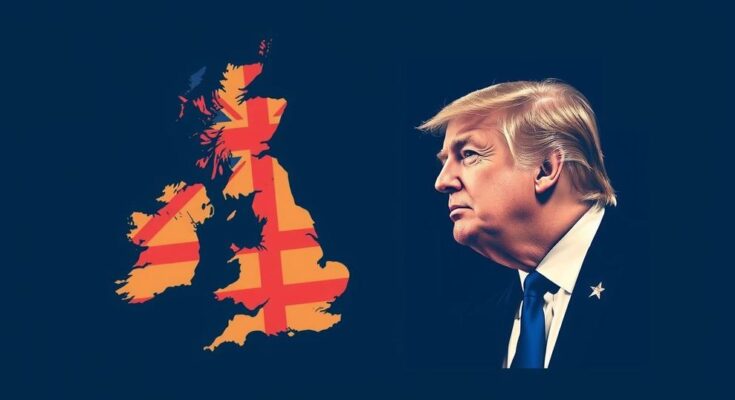As Donald Trump prepares for a possible return to the White House, concerns about new tariffs and their implications for British-U.S. trade relations are mounting. Trump’s previous administration saw significant tariffs imposed on British imports, creating economic ripples. This time, analysts warn that harsher measures could drastically harm the U.K.’s economy, prompting leaders to rethink their approach to trade, particularly in relation to Europe. Starmer’s aim to strengthen ties with the EU may offer a strategic path forward amid rising tensions.
As Donald Trump reclaims the White House, the skies over Britain darken with the possibility of new tariffs on imports. Four years ago, when Trump was in power, Britain already experienced the sting of 25% tariffs on distilled spirits, a consequence of escalating trade wars initiated by a bold U.S. administration. Now, with Trump implying aggressive policies that could reimpose tariffs reminiscent of the 1930s, the ramifications for Britain’s thriving partnership with the U.S. seem ominously heightened. Trade experts and British officials are scrambling to anticipate the impact of potential tariffs on their economy, which currently has a robust $300 billion trade relationship with America. While services like finance and consultancy dominate this bond, a sudden shift toward punitive measures could disrupt trade patterns and burden consumers with increased prices. This precarious situation forces Britain to reconsider its relations, not only with the U.S. but also with Europe. Previous encounters with Trump’s tariffs painted a mixed picture; although they hit certain sectors hard, British exports to America surged amidst the turmoil, indicating possible resilience. Yet, analysts warn that under Trump’s hardline stewardship, the stakes are much higher now. Economists predict severe consequences for the UK’s growth and consumer prices under a more aggressive tariff regime, with estimates suggesting a staggering £22 billion loss for exporters. On the political front, Keir Starmer finds himself under pressure to align closer with Europe while facing demands from the U.S. that mirror past negotiations filled with controversy. Suppose Trump demands the same extreme concessions as before—like lowering food safety standards; the implications could reverberate across the UK’s agricultural sector and its distinct identity post-Brexit. As uncertainty looms over future trade agreements, Starmer’s initiative to re-establish strong ties with the EU could be a lifeline amid rising tensions. However, Trump’s pick for trade representatives suggests a relentless pursuit of a robust “America first” agenda that could drown out Britain’s interests. Overall, this looming shadow of renewed tariffs may very well force Britain to navigate a complex web of international relations, as it seeks to strike a delicate balance between nurturing a fruitful alliance with the U.S. and safeguarding its position in Europe’s embrace—a balancing act where the stakes are higher than ever.
The backdrop of this article lies in the evolving political climate surrounding international trade, particularly the trade relations between the U.S. and the U.K. The narrative harkens back to Trump’s previous presidency when he implemented significant tariffs on various imports, raising concerns within Britain about its future trade dynamics. With Trump potentially returning to power, the U.K. faces the prospect of aggressive trade policies that could reshape its economic landscape, compelling it to reconsider its alliances and trade deals amid a shifting global order.
In the light of Trump’s potential return, Britain stands at a crossroads, grappling with the uncertainty of U.S. trade policy and its implications for future negotiations. The possibility of harsh tariffs looms large, threatening the U.K.’s economic stability and compelling it to reassess its ties to Europe. As leaders like Starmer push for reconciliation with the EU against a backdrop of U.S. unpredictability, the future of Britain’s international relations hangs in the balance, urging careful navigation through turbulent waters.
Original Source: www.theguardian.com



